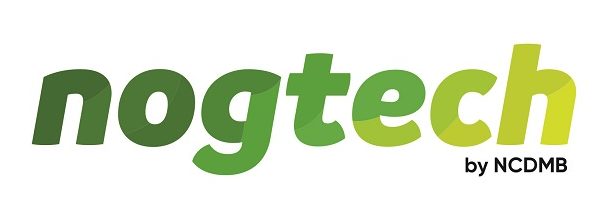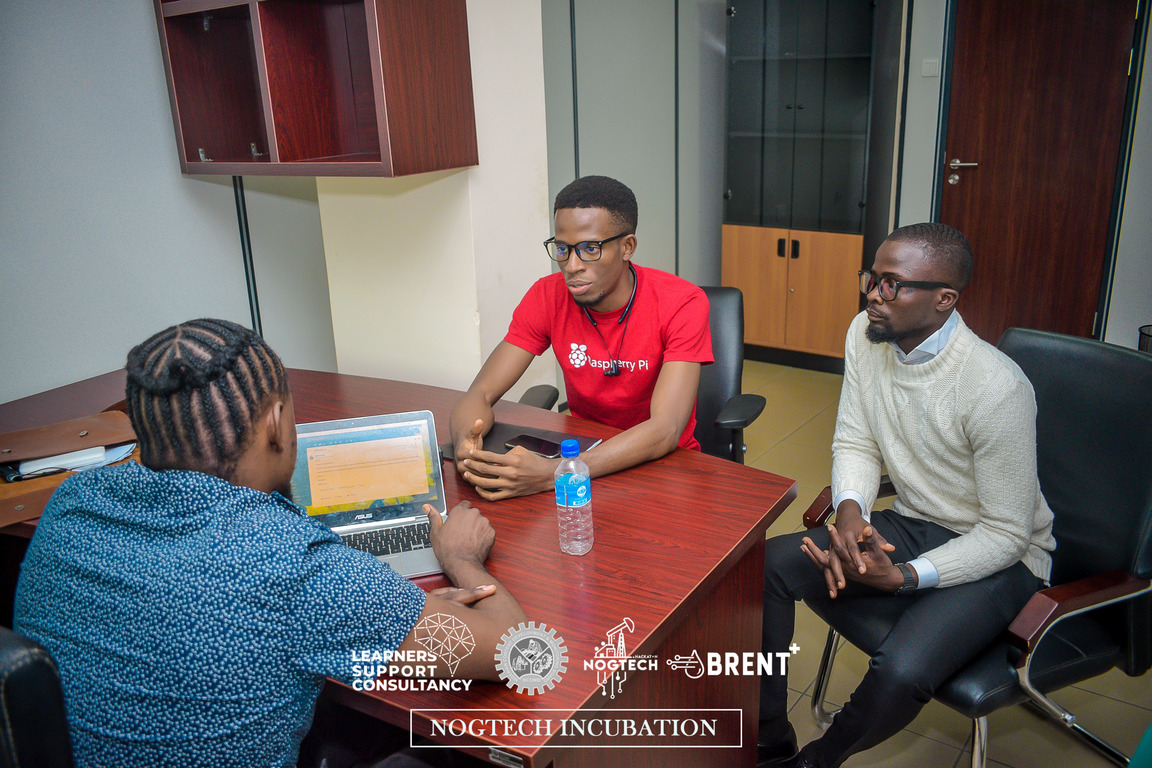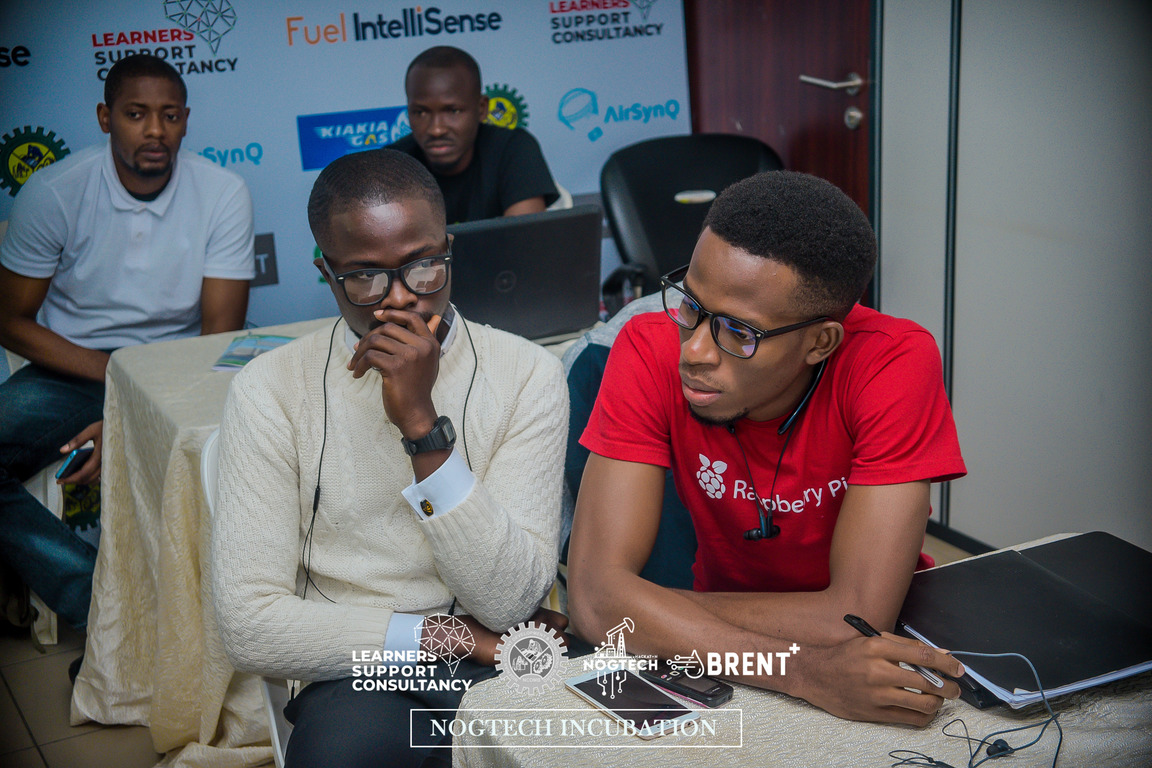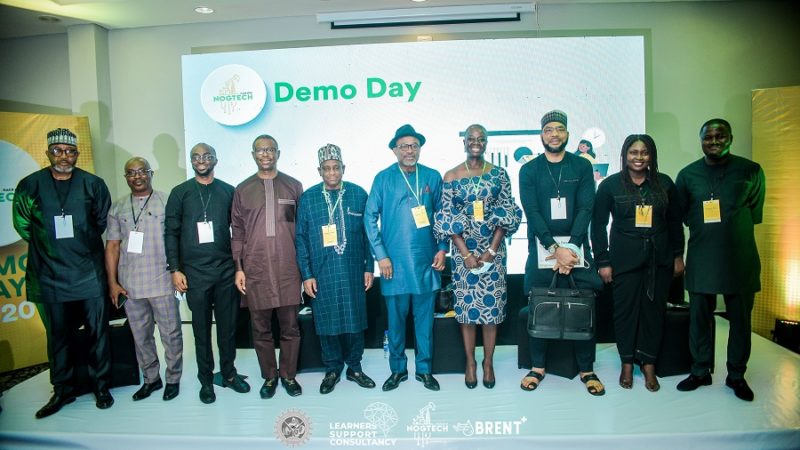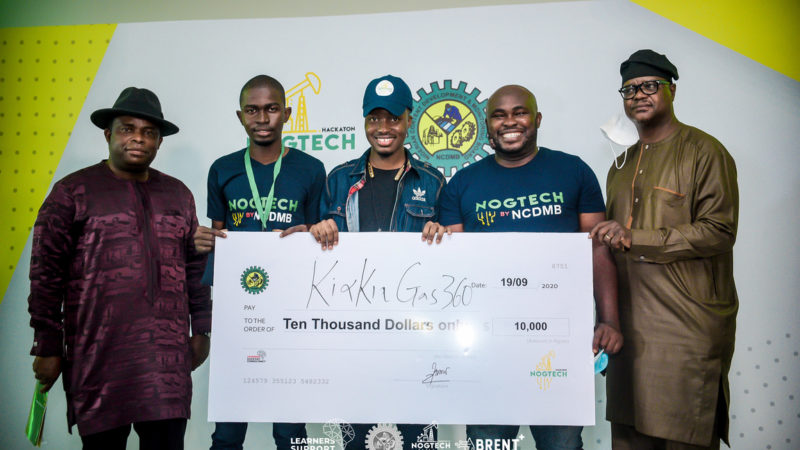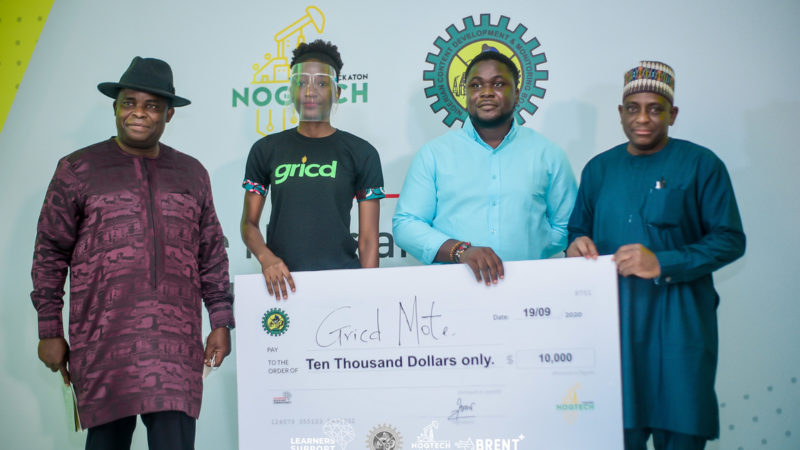How Fuel Intellisense is helping companies to manage their fuel systems through vehicle identification
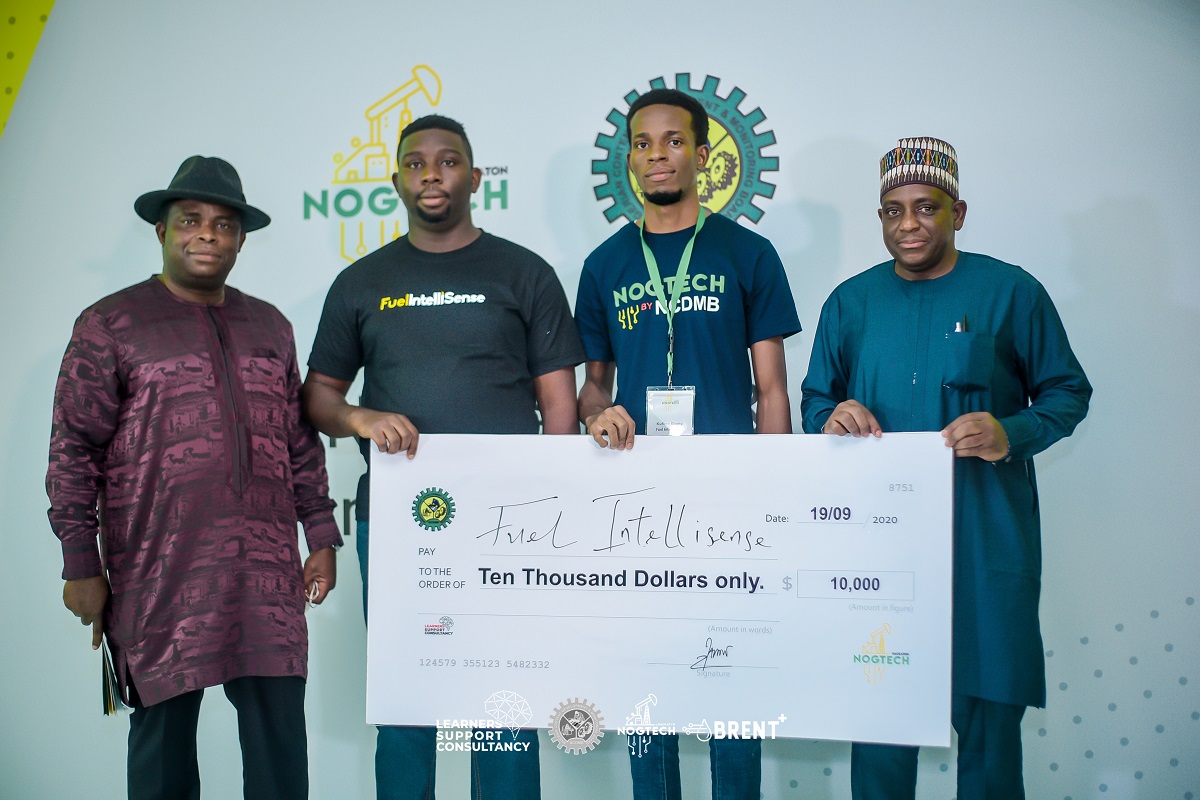
A major problem that has plagued the oil and gas industry for a while and still keeps eating deep into the sector is corruption and lack of integrity. In 2014 alone, a scandal involving the Nigerian National Petroleum Corporation (NNPC), revealed that around $19 billion of oil revenues went missing through corruption and oil theft. While the country’s official audit also estimates that around 200,000 barrels a day are stolen by a sophisticated network of former warlords, local businessmen, and corrupt officials.
Besides high executives embezzling and siphoning funds and fuel products, many local fuel attendants also want to do the same by collaborating with fuel truck drivers to dispense less fuel into the reservoir. This was a nagging problem the Fuel Intellisense team were able to identify and eventually found a solution to.
We sat in a conversation with the masterminds behind Fuel Intellisense, Kufirre Ebong and Cosmas Chukwuebuka to understand how it works and their journey so far.
What exactly spurred the idea?

Cosmas Chukwuebuka: It’s actually an idea we tried to visualise so we got on board with some other people to merge ideas. After a while, we were able to deliver for one of the clients and to a large extent, it was satisfactory so there was a review and they needed some additional features.
That opened a new window for us to have more business partnerships and people called for similar features which circled around the concern for the integrity and how they are able to capture the fuel — how it is being dispensed by drivers, usage and the underground tank. They want to take note of all these things and make sure there is no revenue loss.
Due to the COVID-19, it was quite difficult for us to actualise that project. Though the project is ongoing we’ve had time to harmonise the idea, refine it to be able to suit a general rather than a specific objective, which was more like a study. I’ve visited over 5 fuel stations here and I’m able to understand that they all have a common problem which cuts across public and private sectors. They are facing the challenge of accountability and integrity amongst their staff. They also need analytics and insights to help streamline their process to make a decision faster.
This is actually a problem and we are trying to create a solution that centres around helping retail fuel stations in the downstream sector. They will be able to have access to real-time data interpretation of everything happening around the fuelling station without any human interference, every process will be automated. We are trying to automate the manual approach to avoid human errors and make the information accessible anywhere. This will also make the decision-makers have confidence in the data collected without coming to the site.
Kufirre Ebong: It started at a firm in Port Harcourt, Indorama Petrochemical firm, formerly a Nigerian company acquired by Indians. They usually have this issue where the fuel attendant connived with the truck drivers to steal fuel. It happens that when they come to dispense fuel, they don’t dispense everything in the truck. They dispense into the containers to steal and in the end, the company makes huge losses because the capacity of the fuel is quite much.
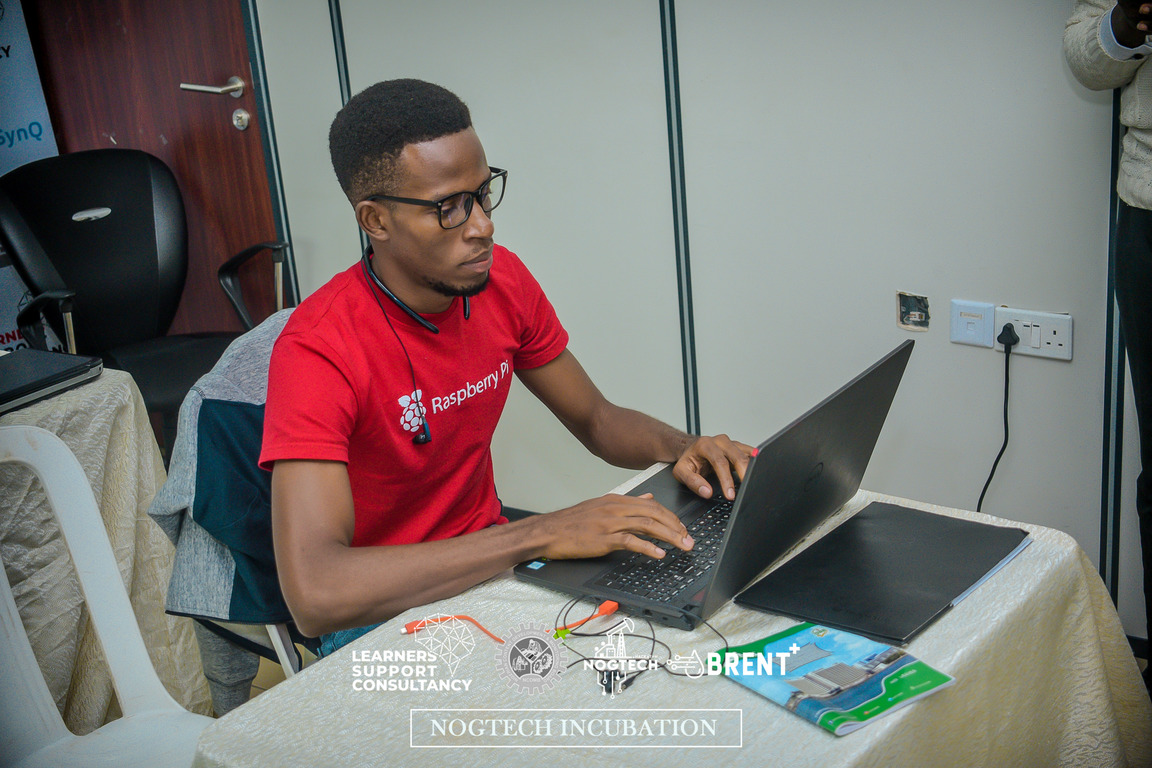
To solve the problem, one of the managers reached out to Cosmas Chukwuebuka, the co-founder and told him about the issue. He had probably searched around but didn’t find a customised solution for that. However, there were already solutions that could automate the process, but our solution specific one curbs people from stealing fuel continuously and also monitoring how fuel is being dispensed real-time.
I spent the whole of last year up until the middle of this year reverse-engineering the technology that was already created by the Indians. We customised and created an innovation about a problem that already existed, peculiar to Indorama.
So far, would you say Indorama is the main client you’ve signed up?
Kufirre Ebong: Due to COVID-19, we were unable to execute the project at Indorama. The company took a terrible hit during the COVID-19 peak period so they had to put the project on a pause.
Do you have competitors in the market currently?
Cosmas Chukwuebuka: The competitors, I would say are not really defined on a particular approach we are taking. There are competitors already that provide for monitoring services with the use of rods only and working on the tank itself to see the rhythm. In a situation whereby you are 500 km away from the tank, you won’t be able to access the information. The rods can only help you read the volume on the underground tank but it can’t be displayed on the computer. But we are actually harnessing the service like an IoT.
Could you talk about the technology? What is the technological process like?
Cosmas Chukwuebuka: It’s a marriage between hardware and software. The solution we are providing has been engineered to a very robust extent. On the other hand, the software team is also working in collaboration with the hardware team because the hardware sends data to the software which it then interprets and understands.
What is your business model?
Cosmas Chukwuebuka: It is software-as-a-service. It’s subscription-based and the hardware components are one-offs when purchased. But the software is subscription-based, we charge per-year per-asset, we are not charging per fuel session. For instance, if you have five pumps and two underground tanks you’re only paying for those.
We have a private fuel station which is a closed-circuit system. They are focused on monitoring fuel usage. We try to achieve this purpose by ensuring that each of the vehicles can’t be fuelled if not authorised. The RFID tag identifies each vehicle.
This means that for a truck to dispense fuel, it must have been scanned. Once this is done, the whole information of the vehicle — number plate, the time of dispense, volume of fuel dispensed is being logged into the server. It helps to know what each driver and the vehicle has taken for the month. In a case whereby someone comes with a container to take fuel, it’s not possible because immediately the fuel nozzle is pulled out from the fuel cap, it stops dispensing.
Kufirre Ebong: We discovered the problem and brainstormed to find the best approach. We gathered our components to do a prototype and wrote the embedded firmware code and ran a single board computer which we used to track the flow and then send the data to the cloud. There is a part of our technology that does RFI authentication for businesses who don’t sell fuel but are interested in monitoring their fleet — how much fuel is taken and if it’s the exact amount inside the vehicle or a container.
Could you please enlighten us about the team and what are your roles?
Kufirre Ebong: For now, Cosmos is the web developer and also the project manager for the entire project. While I’m an embedded systems engineer, I also manage the hardware part of the project. We have a group of engineers who work with us from Kenya and Poland. Currently, the engineer in Kenya does the mechanical design while the one in Poland does the pretext circuit design and assembles it. We have some local talents though they are not our staff we have them on contact because of the time limitation we had.
Cosmas Chukwuebuka: Locally, we have three people on our team which includes me, Kofre and John, who is in charge of handling our social media. We are looking forward to having more local talent join Fuel Intellisense in the marketing and software units.
Let’s talk about the incubation programme. How has it helped Fuel Intellisense so far?
Cosmas Chukwuebuka: It has been of great help and it’s a turning point. Everyone wants to be an innovator, ora startup founder but the incubation actually moulds us into what we ought to be. It’s been over a year since we’ve been doing this and we’ve not had the push to take it seriously and bring people on board.
This incubation has made us see that it is a product people need. It helped us to understand that we need to go out there and let people understand what we do. I believe that if not for NOGTECH, we might still be waiting for Indorama to show up before we start the project. Right now, we are seeing things from a totally different perspective, that this should be a business on its own, it should be marketable and people should see the use for it.
Kufirre Ebong: It gave me a better opportunity to bond, gaining some exposure from brilliant people, rubbing minds together, to hear their experiences and learn about their product. This has made me better.
As technical people, we tend to focus on customers, how the technology itself is sophisticated and the product we are building. But the incubation period was like a chance to help broaden our vision.
How have you been funded prior to NOGTECH?
Cosmas Chukwuebuka: Everyone has put in the effort but thanks to NOGTECH for the platform they provided. The funding helped our vision to become a reality. It helped us to fine-tune our products, to make it have a more industrial look.
And we certainly need more to mass-produce. We don’t want to go to the market with just one MVP, we want to have quite a few more MVPs so that we can hit the market. The fund has actually become a huge kickstarter for us, it has helped us to fine-tune our product, hire one-time quick services and be able to structure a company — we registered the company, have a website and we are still making progress.
What’s your plan after NOGTECH and your 2-year game plan?
Cosmas Chukwuebuka: Our idea is to see Fuel Intellisense as a household kind of platform for fuel stations, it’s something that every first station should have. It should be more like an interconnected society being able to pull data from anywhere you want it. Also, we are looking into having more secured data storage because people are more concerned about who they share their data with, what happens to the data. We are taking every precaution to make sure that there is no data breach for any fuel station.
Kufirre Ebong: We want to be able to cover Port Harcourt because that is where we are based and move to other major cities like Lagos and Abuja. But for two years, we plan to have covered up to 60% of the stations in Port Harcourt. That will be easy because we’ll be targeting big franchises like Conoil and NNPC since they have more branches than the smaller ones. Our plan is to target their team leads and get our product into these fuelling stations.
